Overview
My teaching is focused on interdisciplinary inquiry, making digital tools accessible, and closing equity gaps for Black, Latinx, and Indigenous students. A dedication to diversity and inclusion is essential to developing a vibrant and lasting academic community and is especially important when centering social justice and environmental studies. I am committed to fostering equity, especially by supporting students and academics who are traditionally marginalized in many digital initiatives and projects.
My classes are generally Zero-Textbook Cost (ZTC) and follow the Universal Design for Learning (UDL) principles where there are multiple options for accessing information and comprehension. Students engage in group discussions, low-stakes writing assignments, long-form essays, and hand-on projects, all with clear goals and utility to the subject at hand. I strive to create a supportive community in the classroom, which is achieved by group readings and mini-presentations of assignments, and moderated discussion assignments where students engage with each other’s reaction papers. In distance / online learning, this is achieved through small group discussion threads and live Zoom meetings, which are also recorded and captioned for students who are unable to attend. I am passionate about making technology accessible and having students engage with digital research. As such, I design my courses so students can complete the digital assignments on their phones or library computers, as no special technology or commercial software is needed.
Select Courses
University of California, Los Angeles
Social Justice and GIS
(Fall 2024, Spring 2023, Fall 2023)
In this course, students study digital mapping techniques used in humanities and social sciences, with an emphasis on equity and social justice issues. Through project-based learning, students engage with basic geospatial data types, digital gazetteers, and web-based GIS initiatives. Students will with georeferencing historical maps and sources, visualizing and querying geospatial data, and crafting narratives that use place-based information, tying this work into social justice issues and concepts. At the end of the course students produce a digital mapping project that addresses a social justice issue of their choice.
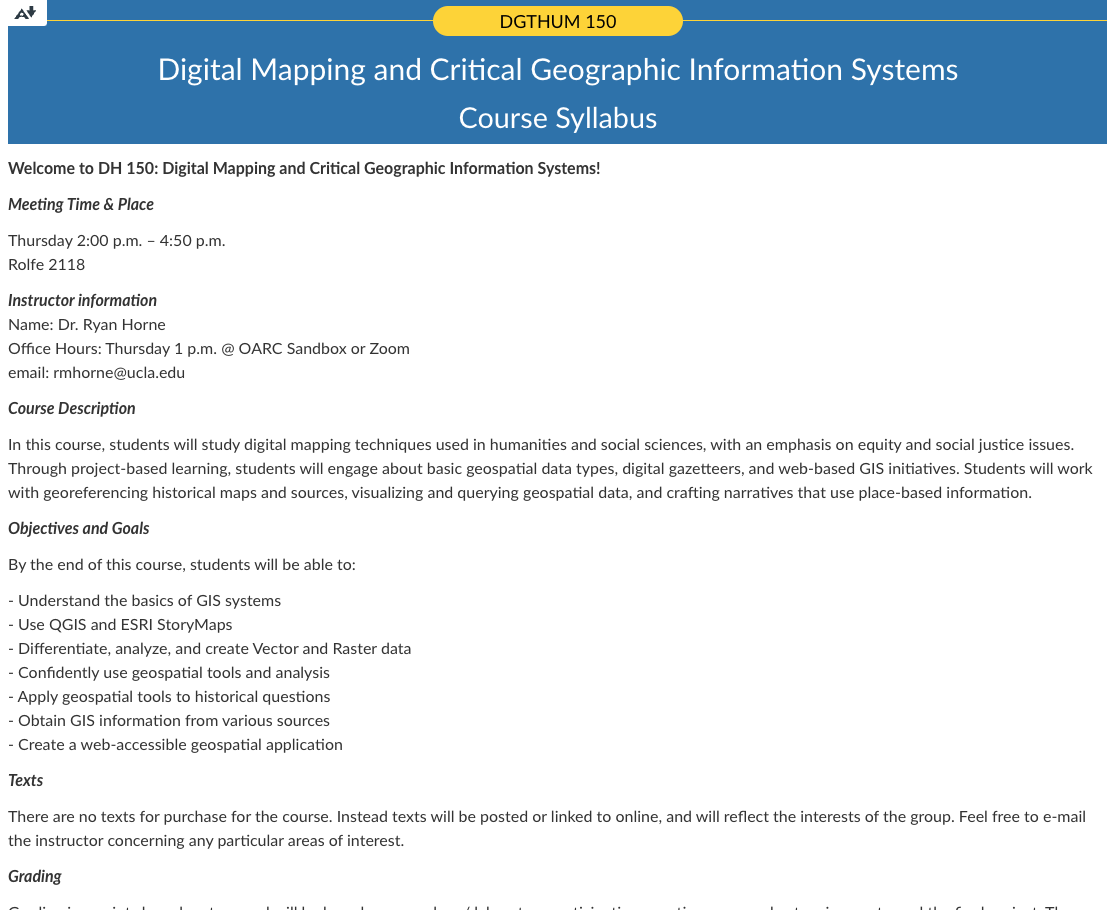
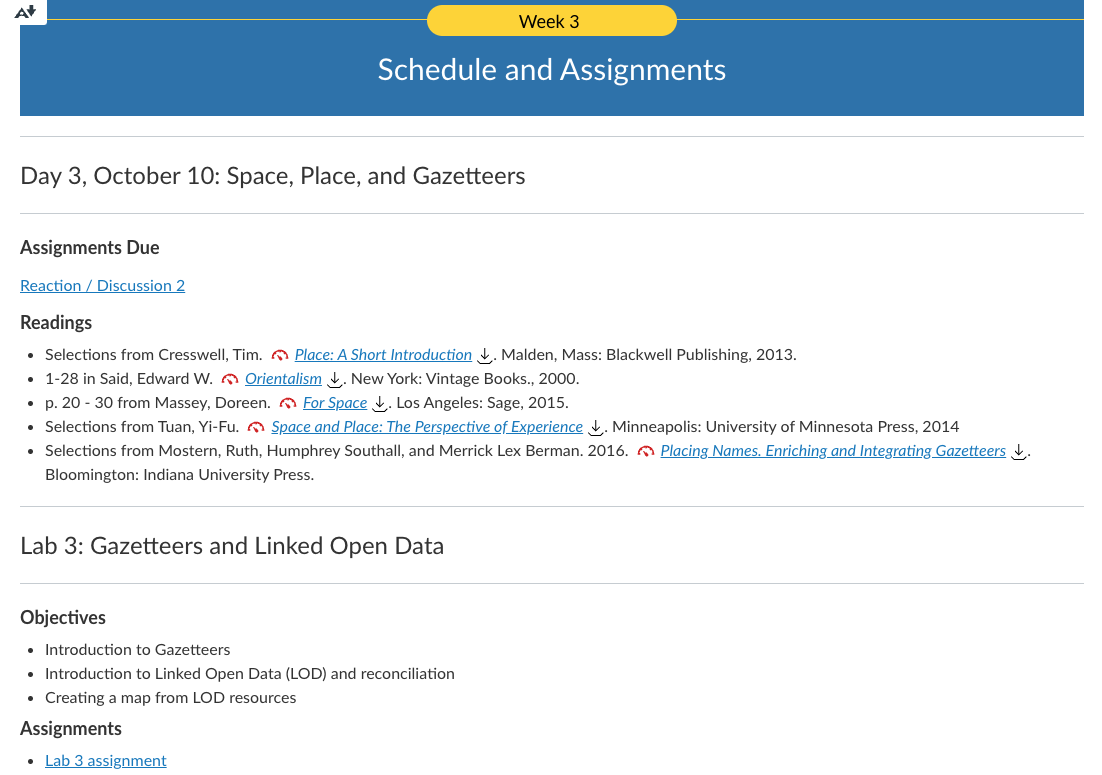
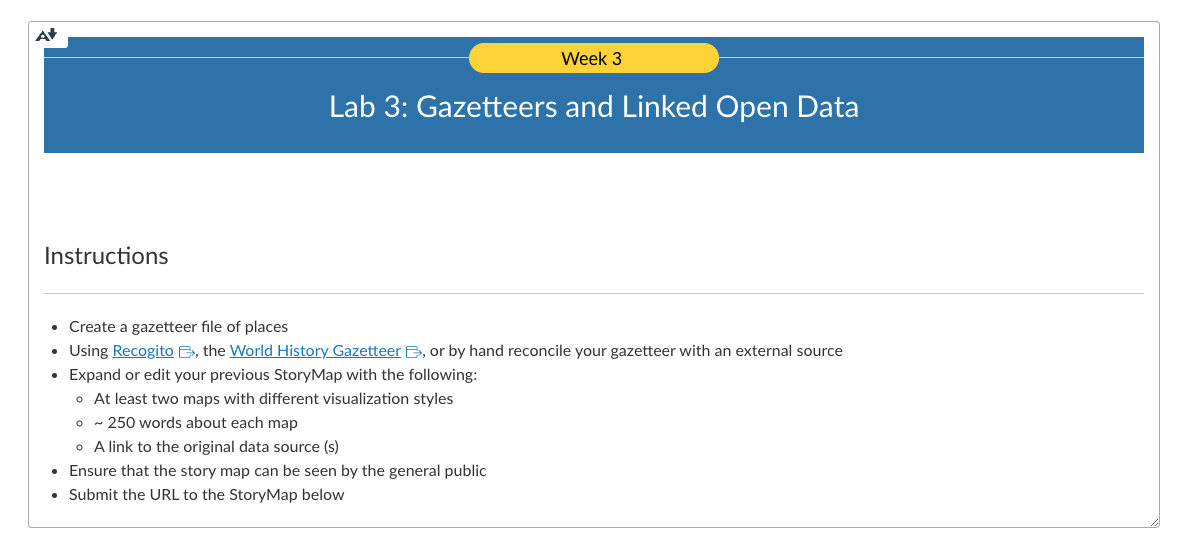
University of Pittsburgh
Digital Atlas Design Internship
(Spring 2019, Fall 2018, Spring 2018, Fall 2017)
In this internship/course students developed a digital project that explored world history and spatial studies. Working with a faculty member who was a content expert in their chosen area, the students learned how to read historical sources as data, create digital gazetteers, and to create digital mapping applications. You can see the student projects here: https://www.worldhistory.pitt.edu/projects.
The University of Pittsburgh selected this course as one of its four entries to the 2019 ACCelerate festival, which is a “… a three-day celebration of creative exploration and research at the nexus of science, engineering, arts, and design (SEAD).”
University of North Carolina, Chapel Hill
HNRS 353.002 Introduction To Social Network Analysis and Conspiracy Theories
(Fall 2016)
This course introduced social networks, network modeling, and critically engages the literature and history of conspiracy theory. We investigated six conspiracy theories as a means to explore network analysis concepts. By the end of this course, students were able to construct an interactive network graph, perform basic network analysis, and presented their findings in a web application, hosted on GitHub. In addition, students familiarized themselves with the social and political implications of conspiracy theories, along with their historical veracity.
After proposing a conspiracy (real or imaginary) for study, the students produced a traditional class paper, then used Gephi in conjunction with the Sigmajs Exporter to create interactive networks of their research. The students then uploaded the results to individual GitHub pages.

This work is licensed under a Creative Commons Attribution-ShareAlike 4.0 International License.
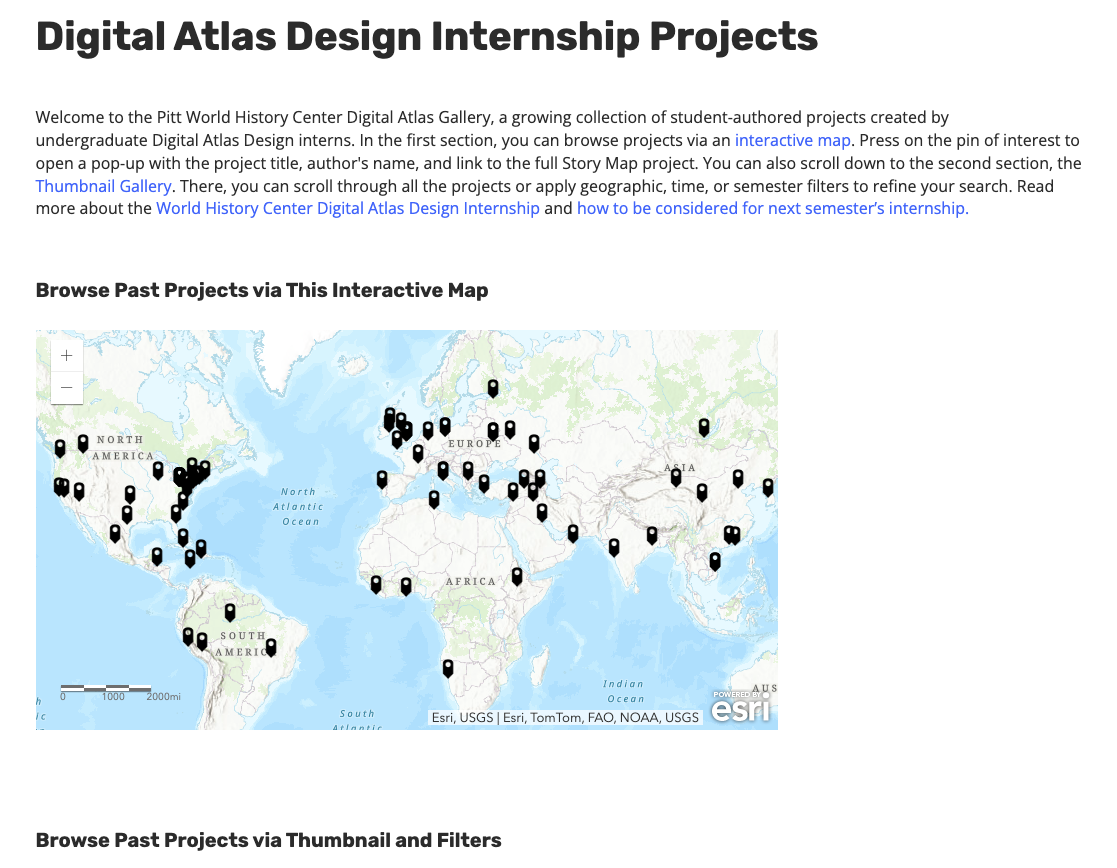
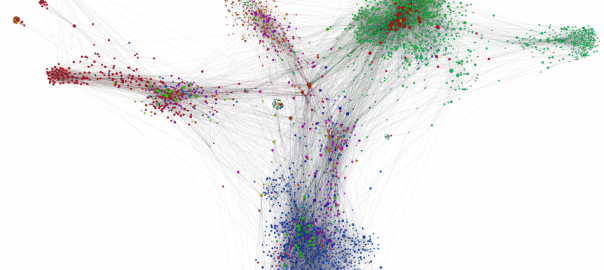

Social Justice and GIS
(Fall 2024, Spring 2023, Fall 2023)
In this course, students study digital mapping techniques used in humanities and social sciences, with an emphasis on equity and social justice issues. Through project-based learning, students engage with basic geospatial data types, digital gazetteers, and web-based GIS initiatives. Students will with georeferencing historical maps and sources, visualizing and querying geospatial data, and crafting narratives that use place-based information, tying this work into social justice issues and concepts. At the end of the course students produce a digital mapping project that addresses a social justice issue of their choice.